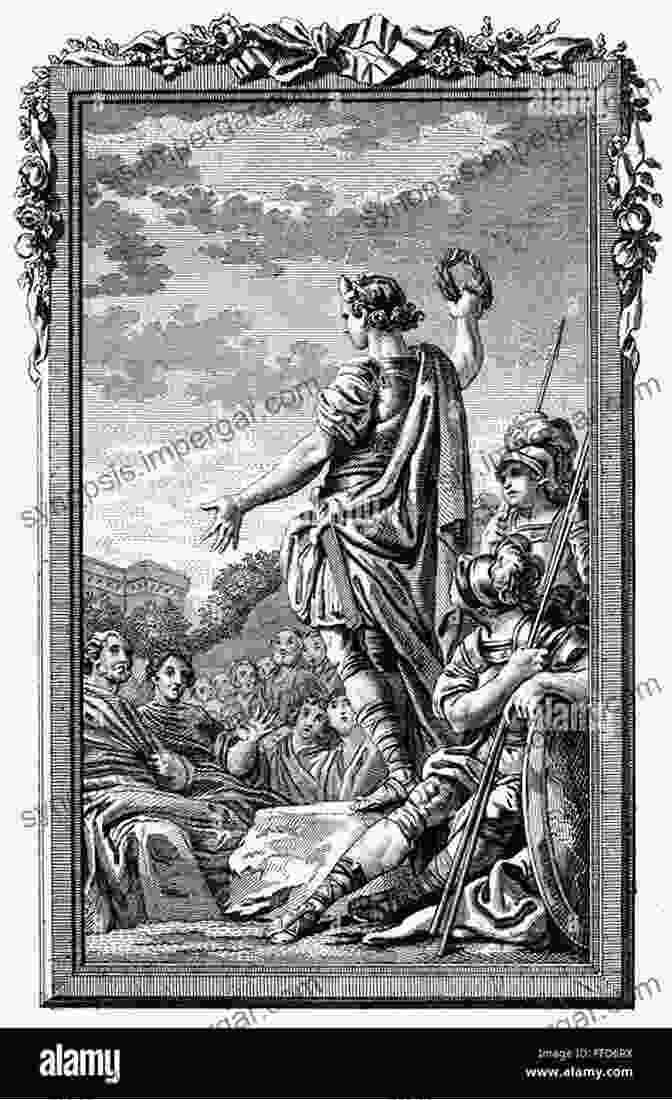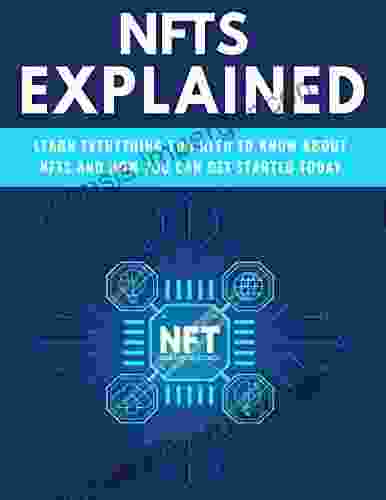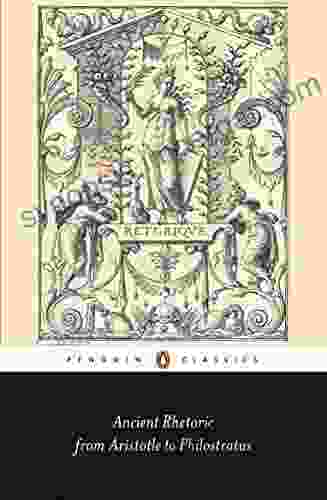Ancient Rhetoric: A Timeless Guide to the Art of Persuasion


4.5 out of 5
| Language | : | English |
| File size | : | 2495 KB |
| Text-to-Speech | : | Enabled |
| Screen Reader | : | Supported |
| Enhanced typesetting | : | Enabled |
| Word Wise | : | Enabled |
| Print length | : | 317 pages |
Prologue: The Birth of Rhetoric
In the vibrant city-states of ancient Greece, where democracy flourished, the power of words held sway. From the bustling marketplaces to the hallowed halls of government, the art of rhetoric emerged as an essential tool for shaping minds and swaying opinions.
In the hands of skilled orators, words became weapons of persuasion, capable of igniting passions, dismantling arguments, and inciting action. The foundations of this eloquent art were meticulously laid by Aristotle, the renowned philosopher, in his treatise "Rhetoric."
Chapter 1: Aristotle: The Master of Persuasion
Aristotle's "Rhetoric" is a seminal work in the field, providing a comprehensive framework for understanding the principles and techniques of persuasion. He identified three main appeals that shape human decision-making: logos (logical reasoning),pathos (emotional appeal),and ethos (speaker credibility).
Aristotle also emphasized the importance of structure and organization in effective speeches, outlining a five-part rhetorical model: invention, arrangement, style, memory, and delivery. By mastering these elements, orators could craft persuasive messages that resonated deeply with their intended audience.
Chapter 2: Isocrates: The Professor of Rhetoric
A contemporary of Aristotle, Isocrates was a renowned teacher of rhetoric who established a prestigious school in Athens. He emphasized the importance of eloquent and polished language, believing that rhetoric was an essential skill for effective leadership and civic engagement.
Isocrates developed a distinct rhetorical style that prioritized clarity, elegance, and rhythm. His speeches and writings served as models of persuasive oration, influencing generations of orators and shaping the development of Greek prose.
Chapter 3: Demosthenes: The Champion of Athens
Demosthenes is widely considered one of the greatest orators of all time. Amidst political turmoil and foreign threats, his powerful speeches galvanized the Athenian people and inspired them to resist tyranny.
Demosthenes's oratory was marked by its passion, energy, and masterful use of language. He employed vivid imagery, forceful arguments, and emotional appeals to connect with his audience and drive home his message.
Chapter 4: Cicero: The Roman Master of Eloquence
Centuries later, in the Roman Republic, Cicero emerged as the preeminent orator. He combined the rhetorical principles of Greek masters with Roman practicality, developing a persuasive style that was both eloquent and effective.
Cicero's speeches exemplified the power of rhetoric in political and legal contexts. He masterfully wove together logical reasoning, emotional appeals, and ethical arguments to sway juries and shape public opinion.
Chapter 5: Quintilian: The Educator of Orators
In the first century CE, Quintilian wrote his influential work, "Institutio Oratoria" ("The Education of an Orator"). This comprehensive guide to rhetoric covered all aspects of the art, from foundational principles to advanced techniques.
Quintilian emphasized the importance of a well-rounded education for orators, including studies in literature, history, philosophy, and law. He also stressed the need for ethical conduct and the responsible use of rhetoric.
Chapter 6: Philostratus: The Chronicler of Sophists
In the third century CE, Philostratus wrote "Lives of the Sophists," a fascinating account of the lives and teachings of prominent sophists, or professors of rhetoric. This work provides valuable insights into the practices and philosophies of these influential thinkers.
Philostratus's writings shed light on the sophists' emphasis on ornate speech, their skillful use of imagery, and their belief in the transformative power of rhetoric.
Epilogue: The Legacy of Ancient Rhetoric
The principles and techniques of ancient rhetoric have had a profound impact on the development of Western thought and communication. From the speeches of Martin Luther King Jr. to the writings of modern political leaders, the influence of ancient orators can still be felt today.
By delving into the wisdom of these rhetorical masters, we can unlock the transformative power of言葉, craft persuasive messages, and make a meaningful impact on the world around us.
"Ancient Rhetoric From Aristotle To Philostratus Penguin Classics" is an invaluable resource for students of rhetoric, communication, and history. Through its comprehensive exploration of the key figures and ideas that shaped ancient rhetoric, this book provides a timeless guide to the art of persuasion and expression.
Whether you are an aspiring orator, a scholar, or simply someone fascinated by the power of words, this book will ignite your curiosity and inspire you to unlock your own rhetorical potential.
4.5 out of 5
| Language | : | English |
| File size | : | 2495 KB |
| Text-to-Speech | : | Enabled |
| Screen Reader | : | Supported |
| Enhanced typesetting | : | Enabled |
| Word Wise | : | Enabled |
| Print length | : | 317 pages |
Do you want to contribute by writing guest posts on this blog?
Please contact us and send us a resume of previous articles that you have written.
 Book
Book Novel
Novel Page
Page Chapter
Chapter Text
Text Story
Story Genre
Genre Reader
Reader Library
Library Paperback
Paperback E-book
E-book Magazine
Magazine Newspaper
Newspaper Paragraph
Paragraph Sentence
Sentence Bookmark
Bookmark Shelf
Shelf Glossary
Glossary Bibliography
Bibliography Foreword
Foreword Preface
Preface Synopsis
Synopsis Annotation
Annotation Footnote
Footnote Manuscript
Manuscript Scroll
Scroll Codex
Codex Tome
Tome Bestseller
Bestseller Classics
Classics Library card
Library card Narrative
Narrative Biography
Biography Autobiography
Autobiography Memoir
Memoir Reference
Reference Encyclopedia
Encyclopedia Debra Deangelo
Debra Deangelo Neil Macgregor
Neil Macgregor Paul Wagner
Paul Wagner Serag Monier
Serag Monier Kara Stephenson Anderson
Kara Stephenson Anderson John David Kennedy
John David Kennedy Dennis Alexander
Dennis Alexander Jason K Stearns
Jason K Stearns David S Mason
David S Mason David M Caterino
David M Caterino David Williams
David Williams Jeffrey Bub
Jeffrey Bub Dawid Sierakowiak
Dawid Sierakowiak Rich Diviney
Rich Diviney Dawn Flowers
Dawn Flowers Gerald Litwack
Gerald Litwack Dee Molenaar
Dee Molenaar Don Malarkey
Don Malarkey Karen Becker Ma
Karen Becker Ma Donald A Cress
Donald A Cress
Light bulbAdvertise smarter! Our strategic ad space ensures maximum exposure. Reserve your spot today!
 Billy PetersonFollow ·6.5k
Billy PetersonFollow ·6.5k Forrest BlairFollow ·14.6k
Forrest BlairFollow ·14.6k Branson CarterFollow ·4.2k
Branson CarterFollow ·4.2k Chase MorrisFollow ·5.3k
Chase MorrisFollow ·5.3k Deacon BellFollow ·17.1k
Deacon BellFollow ·17.1k E.E. CummingsFollow ·18.4k
E.E. CummingsFollow ·18.4k Jorge Luis BorgesFollow ·5.7k
Jorge Luis BorgesFollow ·5.7k Aleksandr PushkinFollow ·16.1k
Aleksandr PushkinFollow ·16.1k

 Ivan Turgenev
Ivan Turgenev38 Art Made During The Pandemic Digitally Enhanced Art...
By [Author's Name] The year 2024 was a time...

 F. Scott Fitzgerald
F. Scott FitzgeraldAmazing Cooking Guide To South Beach Diet: Your Culinary...
Embark on a...

 Zachary Cox
Zachary CoxGeneral History of Chinese Film: A Journey Through Time...
Origins and...

 Cristian Cox
Cristian CoxUnderstanding Antidepressants: An In-Depth Guide to...
Unleashing the Power of...

 Jeremy Cook
Jeremy CookUnlock the NFT Revolution: A Comprehensive Guide for...
The world of Non-Fungible Tokens (NFTs) has...

 Kevin Turner
Kevin TurnerSeneca and Roman Slavery Under Nero's Rule: An In-Depth...
During the reign of...
4.5 out of 5
| Language | : | English |
| File size | : | 2495 KB |
| Text-to-Speech | : | Enabled |
| Screen Reader | : | Supported |
| Enhanced typesetting | : | Enabled |
| Word Wise | : | Enabled |
| Print length | : | 317 pages |












